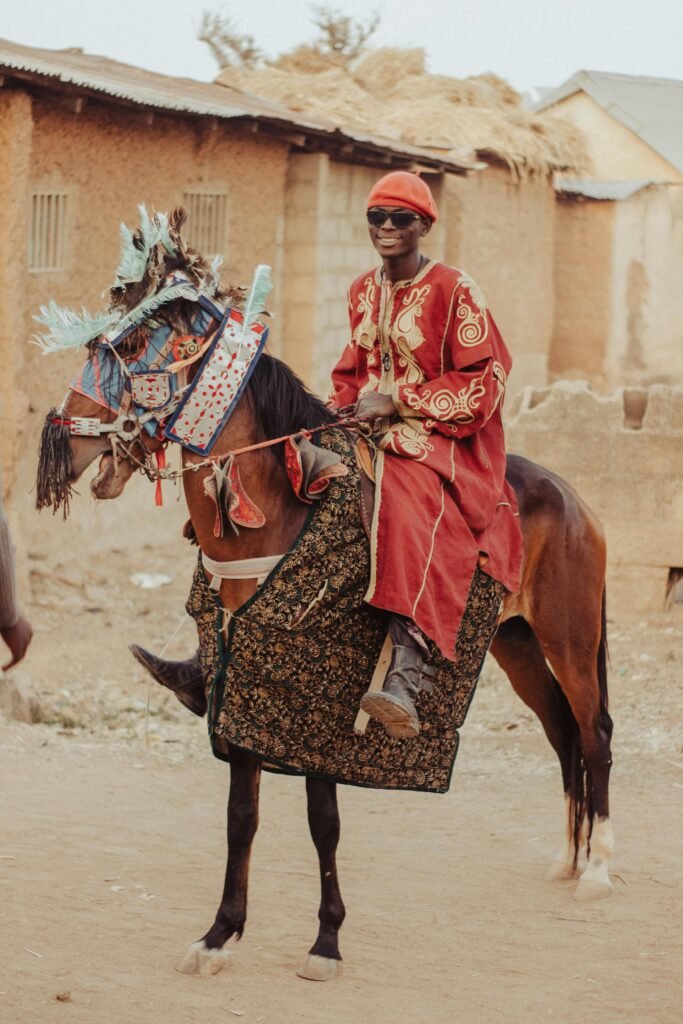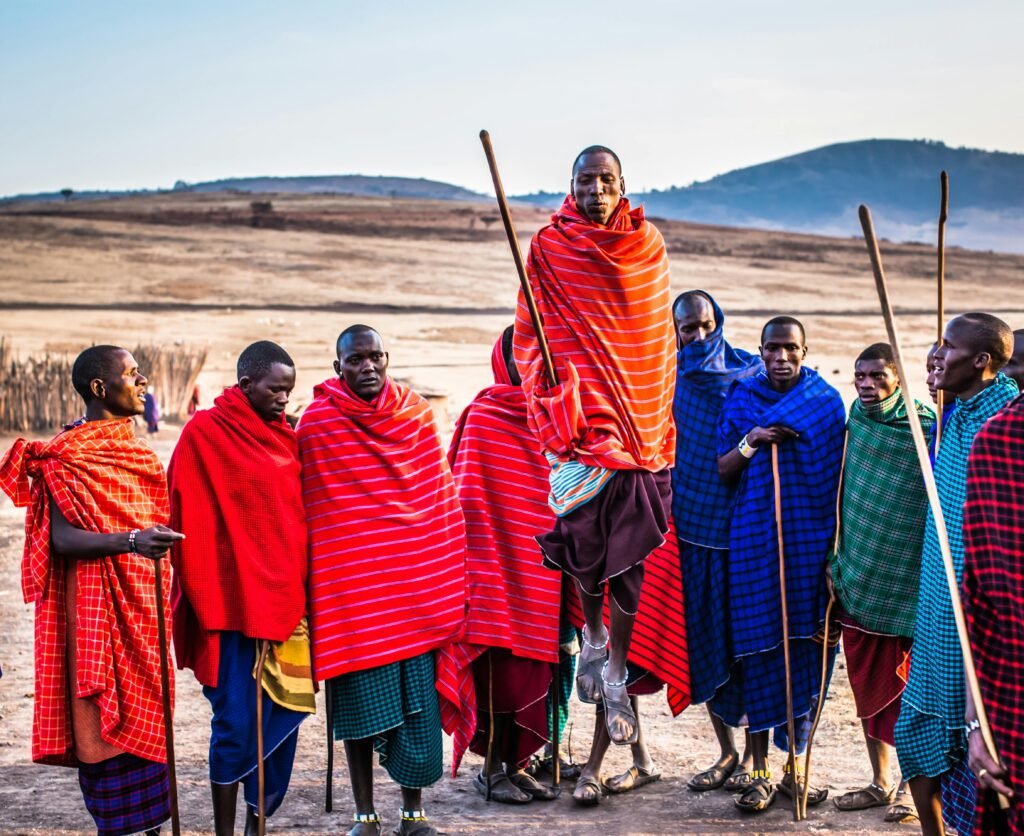Introduction to Cultural Etiquette in Africa
Cultural etiquette is a critical element to consider when visiting African countries, as it plays a significant role in shaping interactions and fostering positive relationships with local communities. Africa is not a monolithic entity; rather, it encompasses a vast array of cultures, languages, and traditions. Each region boasts its own unique customs that dictate social behavior, greetings, hospitality practices, and even dining etiquette. Thus, understanding these local customs can profoundly enhance the travel experience, allowing visitors to engage more meaningfully with the people and places they encounter.

Respect for local customs is essential for fostering goodwill and creating lasting bonds. For instance, many African cultures emphasize the importance of greetings, often viewing them as a necessary part of communication. Engaging in proper greetings can reflect your respect toward the local culture, marking you as an observant visitor who is open to learning. Additionally, showing appreciation for traditional customs can enrich interactions, leading to mutual respect and understanding. This cultural sensitivity can open doors to authentic experiences, such as participating in local ceremonies or sharing meals with families and communities.
The diversity found across Africa means that there is no one-size-fits-all approach to cultural etiquette. From the values of collectivism prevalent in many communities to the significance of hierarchy in social interactions, visitors must be observant and adaptable to various local practices. As we delve into the specific do’s and don’ts of cultural etiquette in Africa in subsequent sections, it is crucial to approach these guidelines with an open mind, recognizing that the wealth of traditions present across the continent enriches the tapestry of human experience.
Understanding the Diversity of African Cultures
Africa is often referred to as a continent of unparalleled cultural diversity, encompassing over 1,500 distinct languages and a plethora of customs and traditions. Each country and region within Africa boasts its unique identity shaped by historical events, geographic distinctions, and varying societal structures. This rich tapestry of cultures is vital for visitors to recognize and respect, as it forms the backbone of cultural etiquette in any travel experience across the continent.

The linguistic diversity of Africa is staggering, with languages such as Swahili, Arabic, Hausa, and Zulu representing just a fraction of the continent’s total linguistic heritage. Understanding the local language or even simple greetings can significantly enhance the experience of interacting with locals, demonstrating respect and a genuine interest in their culture. This simple act can facilitate smoother communication and foster deeper connections, illustrating how language plays an integral role in cultural etiquette.
Religion also serves as a cornerstone of cultural identity within African nations. With a mixture of traditional beliefs, Christianity, Islam, and other faiths, understanding the predominant religions in a region can help travelers navigate social norms and expectations. Observing local customs in religious practices, such as prayer times or dietary restrictions, can enhance one’s respect for the local culture. Additionally, recognizing the role of traditional beliefs in everyday life can provide valuable insights into community dynamics and social interactions.
Beyond language and religion, cultural traditions—such as music, dance, art, and cuisine—are integral to the African experience. Each ethnic group takes pride in its unique customs, from communal rituals to festivals celebrating historical events, offering visitors a delightful array of experiences. Therefore, it is essential for travelers to do thorough research on the specific cultural practices in the regions they plan to visit. Understanding these nuances not only enriches the visit but also reinforces the principles of respect and openness necessary for positive intercultural exchanges.
Common Greetings and Gestures
The diversity of cultures within Africa is reflected in its array of unique greetings and gestures, which often carry deep meanings. In many African societies, greetings are not just a formality but serve as an essential means of building rapport and showing respect. The way people greet one another can vary significantly from country to country, highlighting the rich cultural tapestry of the continent.
In West African countries, for instance, greetings often involve a handshake that is followed by snaps or finger claps, showcasing a friendly and informal interaction. In contrast, in some East African nations, a simple nod or a warm smile might suffice, especially in rural areas. Furthermore, it is common in cultures such as the Zulu from South Africa to greet individuals with a specific acknowledgment of their social stature, often accompanied by a respectful gesture such as bowing the head slightly.

Utilizing proverbs during greetings is also a noteworthy practice in many African cultures. These proverbs encapsulate wisdom and are a way to convey thoughtful greetings or well-wishes that emphasize community and interconnectedness. For example, in certain Nigerian cultures, a greeting might include a proverb related to the importance of health or prosperity, reinforcing social bonds.
However, it is crucial to be aware of gestures that might inadvertently cause offense. For instance, pointing with a finger is considered impolite in many societies; rather, individuals may use their whole hand. Similarly, certain cultures discourage physical contact with the opposite sex, particularly in a formal context. Understanding these nuances is paramount for ensuring respectful interactions while visiting African countries, as they play a vital role in establishing positive relationships and navigating social environments.
Dress Code and Attire
In traversing the diverse tapestry of African cultures, understanding the appropriate dress code is vital. Attire in many African nations reflects respect for local customs, religious beliefs, and longstanding traditions. Therefore, visitors should be mindful of what they wear, ensuring it aligns with local expectations and norms.
Acceptable attire can vary significantly across different regions and cultural groups. For instance, in West African countries such as Nigeria or Ghana, traditional garments like the buba (a flowing blouse) and gele (a headwrap) for women and the buba and agbada (a long robe) for men are popular choices during significant occasions like weddings. In contrast, in East Africa, a kanga (a beautiful wrap) may be worn by women, while men might opt for a safari suit during formal events.

It is essential for visitors, both men and women, to wear modest clothing, especially in more conservative areas. In countries like Egypt or Sudan, where Islamic traditions are predominant, attire should cover the arms and legs, and women might also need to cover their hair when visiting religious sites. Conversely, in more tourist-oriented regions such as South Africa, the dress code is relatively liberal, but it is still encouraged to dress respectfully, particularly when attending cultural events.
When advising on dressing for specific occasions, one should be attentive. For example, attending a wedding can call for vibrant colors and traditional attire to honor the couple’s heritage. In contrast, participation in a religious ceremony may warrant subdued colors and simpler fabric choices. Overall, being aware of the appropriate dress code in different African countries enables visitors to show respect and appreciation for local cultures.
Dining Etiquette: Do’s and Don’ts
Dining etiquette varies widely across African cultures, reflecting the continent’s rich diversity and traditions. Understanding these customs is crucial for fostering respect and connection when visiting African nations. One of the fundamental aspects of dining in many African cultures is the practice of sharing food, often referred to as communal dining. Guests are typically encouraged to participate in communal meals, wherein food is served in large portions for everyone to share. This not only signifies hospitality but also reinforces social bonds among those present.
When dining with an African family, it is considered polite to accept an invitation to share a meal, as refusing can be seen as disrespectful. A common practice in various regions is to eat with the right hand; thus, it is advisable to wash your hands thoroughly before the meal. In some cultures, the left hand is associated with uncleanliness, and using it for eating may cause offense. The etiquette surrounding food presentation may also vary; in certain communities, finishing everything on your plate is a sign of greed, indicating that you were not satisfied with what was offered. Instead, leaving a small portion is often viewed as a compliment to the cook.
Furthermore, one should refrain from rushing through meals, as dining can be a social event that emphasizes conversation and togetherness. It is also advisable to wait for the host to begin eating before you start. In some cultures, it may even be appropriate to pray or offer blessings before a meal. Paying attention to associated gestures, such as clapping or singing before the meal, may also be customary. Respecting these dining etiquettes not only enhances your experience but also shows appreciation for the culture, ultimately contributing to positive interactions with locals.
Photography and Privacy Considerations
When visiting African countries, it is essential to approach photography with a deep understanding of local customs and cultural sensitivities. Photography is not just about capturing moments; it can also intersect with respect for individuals’ privacy and cultural heritage. Before snapping a photo, it is advisable to always ask for permission, particularly when photographing people. In many cultures, individuals may perceive being photographed without consent as intrusive or disrespectful.

Furthermore, public spaces may have their own unwritten rules regarding photography. For instance, in some communities, taking photos of ceremonies, religious practices, or cultural rituals might be considered inappropriate unless explicitly permitted. Understanding these nuances is fundamental to ensuring a positive interaction with local communities. Engaging with local guides can provide insights into what is acceptable and what should be avoided when it comes to photography.
It is also important to recognize that many Africans have diverse perspectives on photography influenced by their personal experiences and cultural backgrounds. While some may welcome being photographed and see it as a form of validation, others might request that their privacy be respected. Ensuring cultural sensitivity means being observant and responsive to non-verbal cues. In scenarios where individuals seem uncomfortable or reluctant to be photographed, it is prudent to refrain from taking their picture.
In addition to seeking consent, keeping cultural heritage in mind is vital. Certain locations may have restrictions on photography to protect their significance and meaning within the community. Respecting these guidelines not only honors the local culture but also fosters goodwill between tourists and residents. Ultimately, mindful photography practices allow for the creation of meaningful images while highlighting the importance of compassion and respect for the people and traditions encountered during travels across African nations.
Tipping and Gift Giving Customs
When visiting African countries, understanding the nuances of tipping and gift-giving customs is essential for ensuring a respectful interaction with locals. Tipping practices vary significantly across the diverse cultures of the continent, and it is important to approach these customs with awareness and consideration.

In many African nations, leaving a tip is a common practice in the service industry, albeit the percentage typically differs from Western standards. For example, in restaurant settings, it is customary to give a tip ranging from 10% to 15% of the total bill. In some places, particularly in more touristy areas, a service charge may already be included in your bill; therefore, it is prudent to check first. Similarly, when staying at hotels or utilizing taxi services, a small gratuity is appreciated, generally amounting to a few local currency notes.
However, it is equally important to recognize instances where tipping may not be expected or culturally appropriate. In certain regions, particularly in rural areas, tipping could be seen as a sign of inequality or a form of charity. Local practices may prioritize hospitality that does not necessitate a monetary reward. Thus, gauging the environment and seeking advice from locals can be beneficial in these situations.
In terms of gift-giving, presents may hold profound cultural significance in various African societies. Gifts are often exchanged during social visits, ceremonies, and significant occasions. When selecting an appropriate gift, consideration should be given to the relationship between the giver and receiver. Traditional items such as handmade crafts or local delicacies are generally well-received, as they reflect an appreciation of local culture. Avoid gifts that may be considered too extravagant, as these can create discomfort or inadvertently suggest superiority.
Understanding the customs surrounding tipping and gift-giving fosters goodwill and strengthens interpersonal relationships when traveling in African countries. Respect for local traditions can lead to more enriching and enjoyable experiences.
Building Relationships with Locals
Establishing genuine connections with local people is vital for a positive experience while visiting African countries. Engaging with the community not only enriches one’s travel experience but also fosters mutual respect and understanding. One effective way to demonstrate respect for local traditions is by showing interest in their customs and practices. Visitors are encouraged to learn a few basic phrases in the local language, as this small gesture often resonates deeply with residents. Such efforts convey a willingness to connect and understand their culture, which is a key aspect of building rapport.
Another avenue for forming relationships is by participating in community activities, such as local festivals, sports events, or artisan workshops. These experiences offer travelers an opportunity to engage in meaningful interactions while also respecting traditions that define the local identity. Additionally, actively listening during conversations is imperative. Practicing attentive listening allows visitors to glean valuable insights into the lives and perspectives of locals, reinforcing the idea that their voices and stories hold significance.
Language barriers can often pose challenges; however, they can be surmounted with patience and creativity. Employing gestures, drawing pictures, or using translation apps can facilitate communication. Most locals appreciate the effort put forth to connect, even if it is through unconventional means. This approach helps to lay the groundwork for goodwill and mutual cooperation. Furthermore, building relationships within the local context often translates into enriched travel experiences, accessing hidden gems or gaining insider knowledge that might otherwise remain undiscovered. Understanding that relationships are foundational in many African cultures can profoundly influence the way visitors interact with their environment and the local populace.
Conclusion
In the exploration of cultural etiquette while visiting African countries, the fundamental theme of respect stands out as paramount. Throughout this blog post, several key points have been highlighted, showcasing the diversity and richness of African cultures. Understanding local customs, traditions, and social norms is not merely a travel guideline; it is a significant aspect of fostering mutual respect and appreciation between visitors and host communities.
Open-mindedness emerges as a necessary trait for travelers seeking to immerse themselves in the local way of life. Approaching these diverse cultures with a willingness to embrace differences enhances the travel experience. By adapting behavior to align with local customs, tourists not only honor the traditions of the communities they visit but also create an environment of reciprocity and mutual understanding. This exchange ultimately enriches the journey, allowing for deeper connections and meaningful interactions.
Respecting local practices, whether it’s greeting elders in a traditional manner or observing dietary restrictions, lays the foundation for a positive experience. Each country in Africa presents unique cultural nuances that reflect historical influences, social dynamics, and communal values. Thus, it is essential for travelers to remain aware and considerate of these factors while exploring the continent.
In closing, embracing the investment in cultural understanding significantly enhances one’s travels. As visitors engage with the local environment through the lens of respect and curiosity, they not only contribute positively to their experiences but also become ambassadors for cultural exchange. By cultivating open-mindedness and adaptability, travelers can truly celebrate the rich tapestry of African cultures while creating unforgettable memories.
